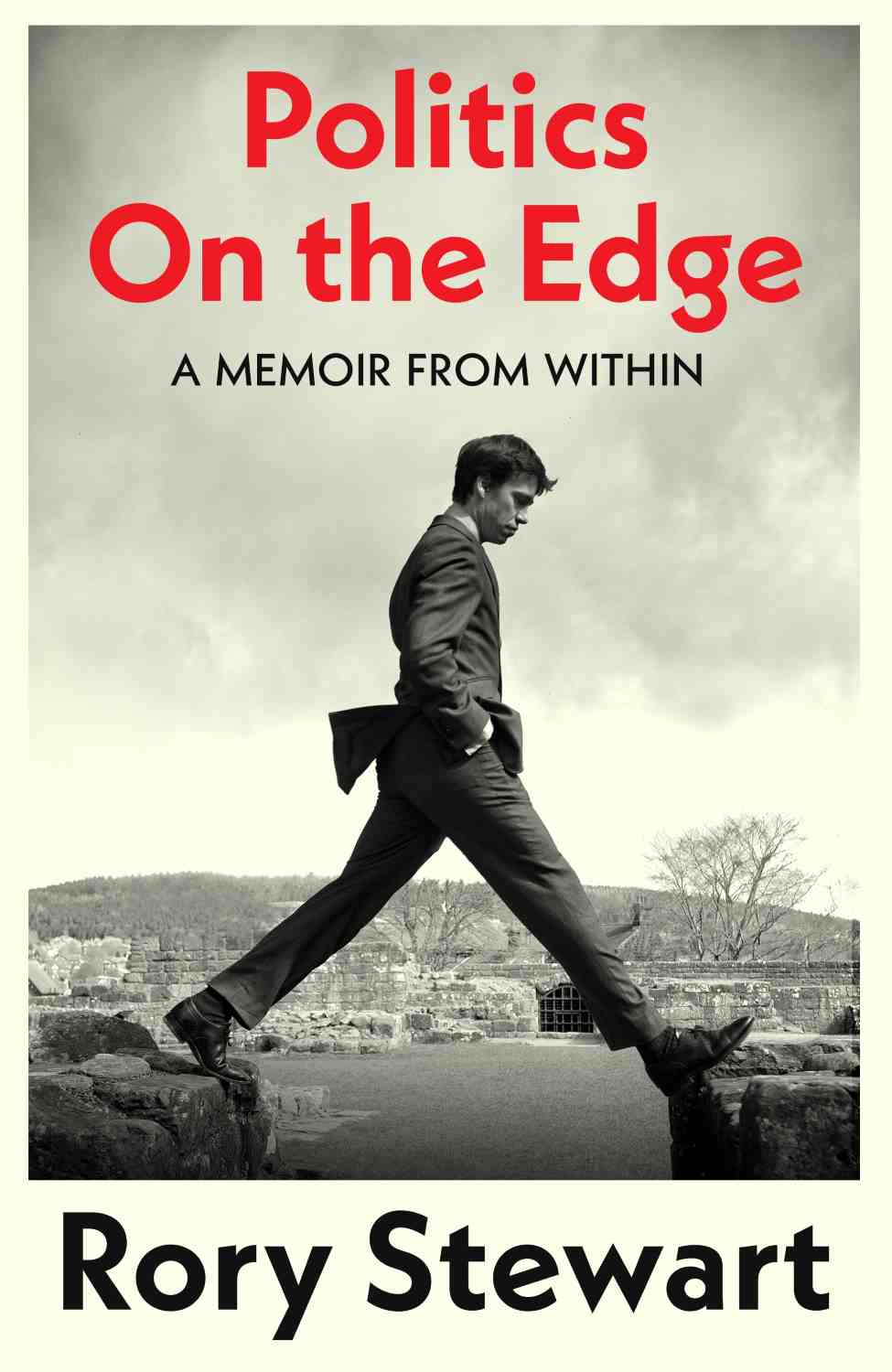Ultimately a study in pain: Lord Hennessy reviews 'Politics On the Edge'
Rory Stewart during Conservative leadership campaign, June 2019 | Image by: PA Images / Alamy Stock Photo
5 min read
A truly absorbing and fascinating book, Rory Stewart’s memoir reveals the scarring effect of disillusionment
As the environment secretary Liz Truss once said to her junior minister, Rory Stewart: “Rory, stop being so interesting.”
He couldn’t help it. He had been “so interesting” ever since he entered the House of Commons as part of the 2010 intake. With the dust of the desert and the scuffing of the mountains on his boots and a CV straight out of John Buchan, Rory Stewart was the great fascinator among that cohort, refreshingly different from the sleek products of special adviserdom, Westminster think tank or management consultancy who joined Parliament with him.
All this plus ambition, relentless energy and a way with words, he was built to attract jealousy and resentment not just from his fellow arrivistes but also from those who had laboured long on the Conservative back benches during the years of Blair and Brown governments, and even earlier.
The media relished Rory. So did many on the other party benches and their votes propelled him to a back bench prize: chair of the Defence Select Committee.
He had, after Eton and Oxford, served as a soldier, the “edgier” sort of diplomat (to use one of his formulations), the equivalent of an old-fashioned district commissioner in Iraq after the war (his dad, Brian, had been a colonial hand in Malaya and risen very high in the Secret Intelligence Service when he came home) and as a charity relief specialist in Afghanistan after that conflict.
As if all this was not enough, he’d been a Harvard professor too. It was, as Lady Bracknell might have put it, a life crowded with incident.
He fell deeply in love with his huge and exquisitely beautiful constituency. Brian called him the DC for Penrith and the Border. His constituents seemed to savour their young laird in return. He walked and talked the length and breadth of his piece of northern England (as he had a good swathe of Afghanistan).
The pages… start to burn when Stewart takes his pen to the Johnson phenomenon
Once he gained ministerial preferment, Stewart rose fast – four departments, six ministerial portfolios in less than four years.
As a cabinet minister (international development), he ran for his party’s leadership and the premiership when Boris Johnson did in 2019. His energy, singularity of character and unorthodox campaigning (heaps of walking and chatting, once more) brought much approbation in the country as a whole and, briefly, it looked as if his party might pick him – a fully fashioned scion of the good chap theory of government, in contrast to the incarnation of the chaotic and roguish approach to politics and the constitutional conventions.
But, for the many of us who watched in horrified fascination from outside the Conservative tribe, the party chose the wrong Etonian, the cad rather than the commissioner. The pages of Politics on the Edge start to burn when Stewart takes his pen to the Johnson phenomenon. He detests pretty well everything about him.
Stewart had other disadvantages, too. He was a Remainer swimming against a strongly Brexiteer tide in the wider Conservative Party. Within the Westminster party, those early jealousies worked against him and the wretched televised hustings first raised him up and then cast him down. (They are occasions which favour ‘plausible tarts’ – and being a plausible tart is very much among the lesser skills required for being a capable and successful prime minister.)
As for the problems of government, one of the many valuable ingredients of this truly absorbing book is Stewart’s dissection of the failings of the British way of central government and the need for serious Whitehall reform. His restlessness sears the pages devoted to Defra, the Ministry of Justice (where he was district commissioner for prisons), Foreign Office and DfID. If we ever get a royal commission on Whitehall (which we desperately need) there are two ready-made, outstanding candidates to chair it – Stewart and Dame Kate Bingham (of Covid fame).
 This is a book full of fascination but, ultimately it’s a study in pain – the scarring effect of disillusion. If you can bear it, have a listen to this:
This is a book full of fascination but, ultimately it’s a study in pain – the scarring effect of disillusion. If you can bear it, have a listen to this:
“Nine years in politics had been a shocking education in lack of seriousness. I had begun by noticing how grotesquely unqualified so many of us were for the offices we were given. I had found, working for Liz Truss, a culture that prized campaigning over careful governing, opinion polls over detailed policy debates, announcements over implementation. I felt that we had collectively failed to respond adequately to every major challenge of the past 15 years: the financial crisis, the collapse of the liberal ‘global order’, public despair and the polarisation of Brexit.”
As if this were not enough, “to put an egotistical chancer like Boris Johnson into the heart of a system that was already losing its dignity, restraint and seriousness was to invite catastrophe”.
I wish, somehow, some way, Stewart could walk back into the fray of top level, frontline politics. I’m not alone.
Lord Hennessy is a Crossbench peer. His new book Land of Shame and Glory, Britain 2021-22 will be published by Haus in October
Politics On the Edge: A Memoir from Within
By Rory Stewart
Published by Jonathan Cape on Thursday 14 September
